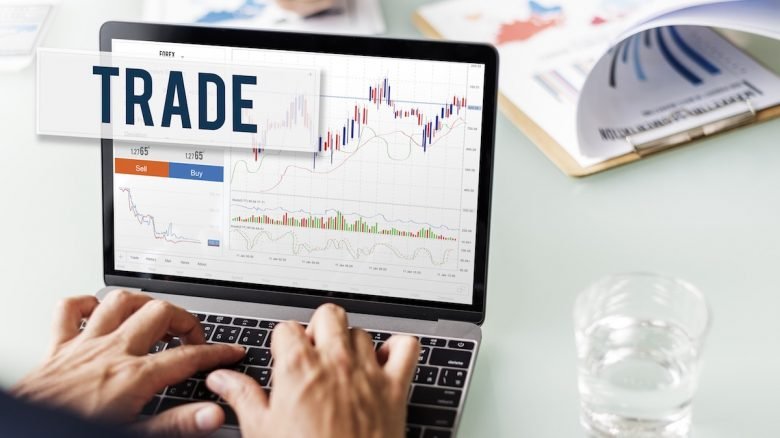In the digital age, online brokerage platforms have become an integral part of the financial landscape. These platforms provide individuals with the opportunity to invest in stocks, bonds, cryptocurrencies, and other financial instruments from the comfort of their homes. However, as the popularity of online brokerage grows, so does the importance of regulation and security in ensuring the safety and integrity of these platforms. In this comprehensive article, we will delve into the world of online brokerage, exploring the critical roles that regulation and security play in safeguarding your financial future.
Table of Contents
- Introduction
- The Rise of Online Brokerage
- The Regulatory Framework
- Government Agencies
- Industry Self-Regulation
- Why Regulation Matters
- Securing Your Investments
- Data Encryption
- Two-Factor Authentication
- Account Verification
- Challenges and Threats
- Cybersecurity Risks
- Market Manipulation
- Regulatory Compliance
- The Role of Investor Education
- Choosing a Secure Online Brokerage
- Conclusion
- FAQs (Frequently Asked Questions)
Introduction
The world of finance has witnessed a profound transformation in recent years, with online brokerage platforms at the forefront of this revolution. These platforms have democratized investing, allowing individuals with diverse backgrounds to participate in the financial markets. While online brokerage offers tremendous opportunities, it also brings forth challenges related to regulation and security. This article aims to provide you with a comprehensive understanding of the regulatory landscape and security measures in online brokerage.
The Rise of Online Brokerage
Online brokerage platforms have disrupted the traditional brokerage model. They provide easy access to financial markets, real-time trading, and a plethora of investment options. With user-friendly interfaces and mobile apps, they have made investing more accessible to a broader audience.
The Regulatory Framework
Government Agencies
Online brokerages operate within a regulatory framework established by government agencies. In the United States, for instance, the Securities and Exchange Commission (SEC) plays a pivotal role in overseeing the securities industry. Other countries have their regulatory bodies, each with its own set of rules and regulations.
Industry Self-Regulation
Apart from government oversight, the financial industry often practices self-regulation. Organizations like the Financial Industry Regulatory Authority (FINRA) in the U.S. set rules and standards for brokerage firms, ensuring fair practices and market integrity.
Read more: The Role of Online Brokerage in the Rise of Retail Investors
Why Regulation Matters
Regulation serves as a safeguard against fraudulent activities and unethical behavior in the financial industry. It provides transparency, ensures fair competition, and protects investors from potential scams. A regulated online brokerage platform is more likely to prioritize the interests of its customers.
Securing Your Investments
Data Encryption
One of the core elements of online brokerage security is data encryption. Secure platforms use encryption protocols to protect your sensitive information, such as financial transactions and personal details, from unauthorized access.
Two-Factor Authentication
To enhance security further, many online brokerages offer two-factor authentication (2FA). This adds an additional layer of protection by requiring users to provide a second form of verification, such as a one-time code sent to their mobile device.
Account Verification
When opening an account with an online brokerage, a stringent verification process is often in place. This involves verifying your identity and financial information to prevent identity theft and fraudulent activities.
Challenges and Threats
Cybersecurity Risks
Online brokerages face constant threats from cybercriminals who seek to exploit vulnerabilities in their systems. Phishing attacks, malware, and hacking attempts are common challenges that require robust cybersecurity measures.
Market Manipulation
Market manipulation is another concern in online brokerage. Pump-and-dump schemes, insider trading, and other fraudulent practices can distort market prices and harm investors.
Regulatory Compliance
Online brokerages must adhere to regulatory requirements. Compliance includes financial reporting, investor protection, and transparency. Failure to comply with regulations can lead to penalties and loss of credibility.
The Role of Investor Education
Investor education is crucial in the online brokerage space. Investors should be aware of the risks and rewards of trading and investing. Many brokerages offer educational resources to empower their clients with knowledge.
Choosing a Secure Online Brokerage
When selecting an online brokerage platform, consider factors such as regulatory compliance, security features, fees, and user reviews. Conduct thorough research to ensure you choose a platform that aligns with your financial goals and risk tolerance.
Protecting Your Investments: Tips and Best Practices
1. Regularly Monitor Your Account
It’s essential to keep a close eye on your online brokerage account. Regularly review your transaction history and account statements to detect any unauthorized or suspicious activities. Promptly report any discrepancies to your brokerage’s customer support.
2. Use Strong Passwords
Strong, unique passwords are your first line of defense against unauthorized access. Create complex passwords that include a combination of uppercase and lowercase letters, numbers, and special characters. Avoid using easily guessable information like birthdays or names.
3. Beware of Phishing Attempts
Phishing is a common tactic used by cybercriminals to trick individuals into revealing sensitive information. Be cautious of unsolicited emails, messages, or calls asking for your login credentials or personal details. Legitimate financial institutions will never request such information via email or phone.
4. Keep Software and Devices Updated
Outdated software and devices can have security vulnerabilities. Ensure that your computer, smartphone, and any other devices you use for online trading are running the latest operating systems and have up-to-date security software installed.
5. Educate Yourself Continuously
The world of finance and technology is constantly evolving. Stay informed about the latest trends, security threats, and regulatory changes related to online brokerage. Many brokerages offer educational resources and blogs to help clients stay up-to-date.
Read more: Mobile Trading Apps and Accessibility: A Revolution in Financial Markets
6. Diversify Your Investments
Diversification is a risk management strategy that involves spreading your investments across different asset classes and securities. By doing so, you reduce the risk associated with having all your eggs in one basket.
The Role of Regulation in Investor Protection
1. Enforcing Fair Practices
Regulatory bodies play a crucial role in ensuring that online brokerages adhere to fair and ethical practices. They establish rules and standards that prevent fraudulent activities and maintain market integrity.
2. Investor Compensation Schemes
Some countries have investor compensation schemes in place. These schemes provide a safety net for investors in case a brokerage firm faces financial difficulties. Be aware of the compensation limits in your jurisdiction.
Emerging Technologies and Their Impact
The rapid advancement of technology brings both opportunities and challenges to online brokerage:
1. Blockchain and Cryptocurrencies
The adoption of blockchain technology and cryptocurrencies has introduced new asset classes to online brokerage. Regulatory bodies are working to establish guidelines for these digital assets to ensure investor protection.
2. Artificial Intelligence (AI)
AI-driven algorithms are used for trading and investment analysis. Regulatory oversight is needed to ensure that AI is used responsibly and transparently in online brokerage.
The Future of Regulation and Security
As online brokerage continues to evolve, so will the regulatory and security landscape. Governments and industry organizations will adapt to new technologies and market dynamics to protect investors and maintain market stability. Investors should expect increased scrutiny and transparency in the industry.
Conclusion
In the digital era, online brokerage platforms have made investing accessible to people worldwide. However, with the convenience and opportunities come responsibilities. Protecting your investments requires a proactive approach, including strong cybersecurity practices, staying informed, and choosing a well-regulated brokerage. As technology and regulations evolve, investors must adapt to safeguard their financial future in the world of online brokerage.
Remember, your financial security is ultimately in your hands. By staying vigilant and informed, you can enjoy the benefits of online brokerage while mitigating risks effectively.
If you’re ready to embark on your investment journey, make sure to choose a reputable online brokerage platform that aligns with your financial goals and offers robust security measures.
In summary, online brokerage platforms have changed the way we invest, providing accessibility and convenience like never before. However, vigilance, education, and responsible practices are essential for safeguarding your financial future in this digital age.
In conclusion, online brokerage platforms have revolutionized the way we invest, making financial markets more accessible to everyone. However, with this convenience comes the responsibility of understanding the importance of regulation and security. A well-regulated and secure online brokerage can safeguard your financial future and protect your investments from potential threats. Stay informed, choose your brokerage wisely, and take advantage of the opportunities that online brokerage offers while mitigating risks.
FAQs (Frequently Asked Questions)
- What is the role of the SEC in regulating online brokerages?
- The SEC oversees the securities industry in the United States, ensuring that online brokerages adhere to rules that protect investors and maintain market integrity.
- How can I verify the security of an online brokerage platform?
- Look for features like data encryption, two-factor authentication, and a strong regulatory presence. Read user reviews and consider recommendations from trusted sources.
- What should I do if I suspect fraudulent activity on my online brokerage account?
- Immediately contact the brokerage’s customer support and follow their instructions. Also, report the incident to relevant regulatory authorities.
- Is online brokerage suitable for beginners?
- Yes, many online brokerages provide educational resources and user-friendly interfaces to help beginners get started in investing.
- Are online brokerages safe from market manipulation?
- While regulatory oversight helps mitigate market manipulation, it’s essential to stay vigilant and report any suspicious activities on the platform.
In the ever-evolving world of online brokerage, staying informed and practicing due diligence are your best allies in achieving financial success while protecting your investments.
Image Source: TodayTrader




